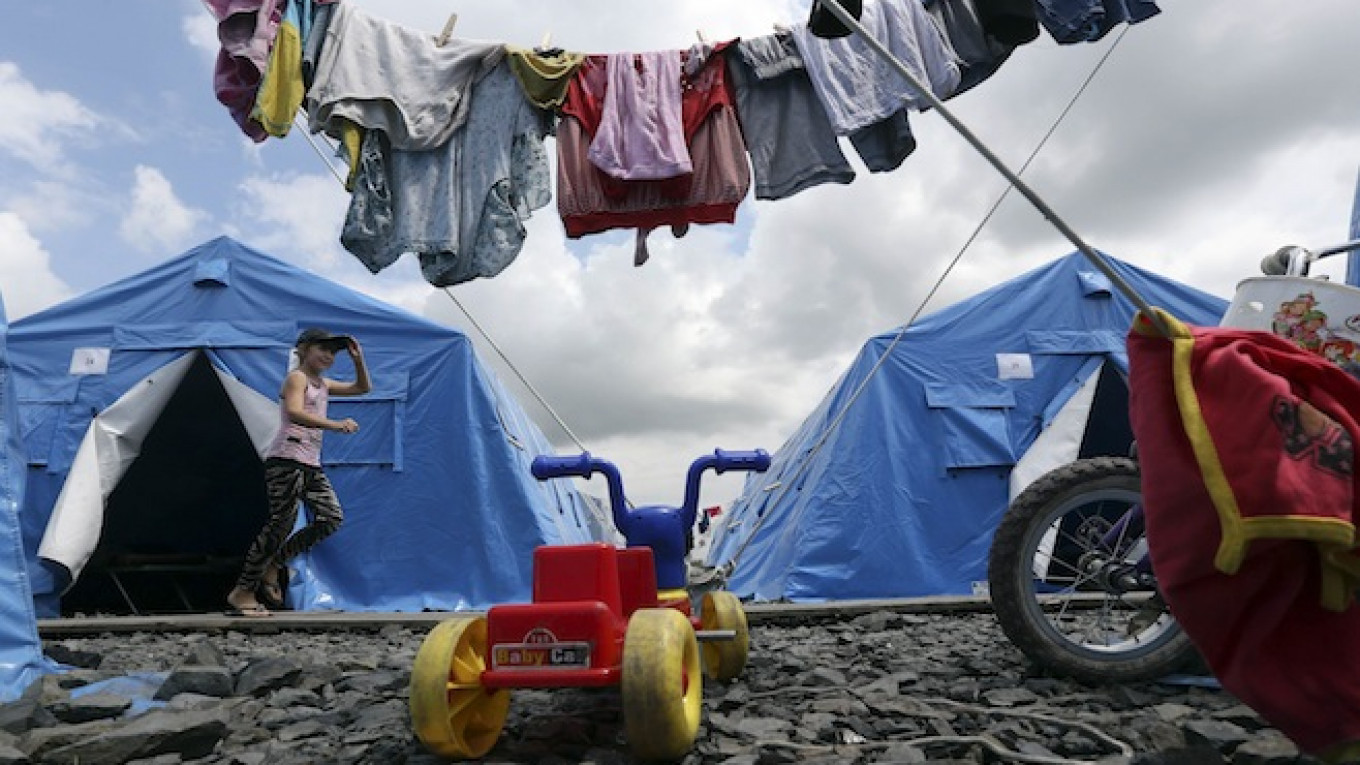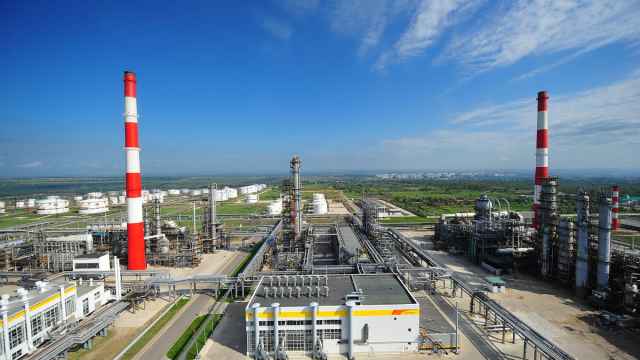A fear of landmines is hampering grain harvesting in parts of Ukraine's east where separatists are fighting government forces, agricultural ministry officials said.
Ukraine, one of the world's key exporters of wheat, barley and maize, is likely to harvest around 60 million tons of grain this year, analysts and traders say.
But agriculture minister Ihor Shvaika said the harvest, which began in late June, would be complicated in the eastern regions because of farmers' fears of mines planted in fields.
Though Shvaika said there was a threat to only a relatively small part of harvest operations, he said farmers' livelihoods in those regions had been hard hit by the military conflict.
"We have to get to work to de-mine fields for the harvest in the Donetsk and Luhansk regions," he told journalists.
"In every district there are mined fields. Generally, it is the land running alongside main roads," Vasyl Dzhulay, a local official in Donetsk region was quoted separately by the administration's press service.
Ukraine's main grain-growing areas are in the centre of the country, and the Donetsk and Luhansk regions accounted last year for only 4.8 percent of volume produced and 8.3 percent of the area harvested.
But this year Ukraine has also to discount any grain from Crimea, a Black Sea peninsula annexed by Russia in March though the region accounted for only 1.2 percent of grain harvested last year.
Ukrainian farms have harvested 2.7 million hectares as of July 8, gathering a total of 7.8 million tons, the ministry said on Thursday. This includes 4.2 million tons of wheat and 3.5 million tons of barley, Shvaika said, according to his ministry's website.
Ukraine harvested a record 63 million tonnes of grain last year.
Prime Minister Arseniy Yatsenyuk, speaking to grain exporters and traders in Kiev on Thursday, said: "We are losing a sizable volume from Crimea, Donetsk and Luhansk. But I hope that the gross harvest will be higher than the statistical average for the last five years."
Describing the agrarian sector as one of the most promising branches of the economy, he encouraged it to look to cooperation particularly with the United States to bring in new technology and boost production.
Grain sales earned about $6.4 billion last year — roughly 10 percent of total export revenue.
A Message from The Moscow Times:
Dear readers,
We are facing unprecedented challenges. Russia's Prosecutor General's Office has designated The Moscow Times as an "undesirable" organization, criminalizing our work and putting our staff at risk of prosecution. This follows our earlier unjust labeling as a "foreign agent."
These actions are direct attempts to silence independent journalism in Russia. The authorities claim our work "discredits the decisions of the Russian leadership." We see things differently: we strive to provide accurate, unbiased reporting on Russia.
We, the journalists of The Moscow Times, refuse to be silenced. But to continue our work, we need your help.
Your support, no matter how small, makes a world of difference. If you can, please support us monthly starting from just $2. It's quick to set up, and every contribution makes a significant impact.
By supporting The Moscow Times, you're defending open, independent journalism in the face of repression. Thank you for standing with us.
Remind me later.






